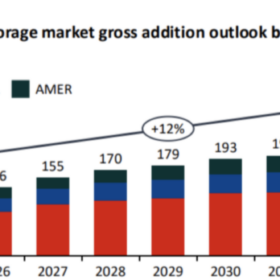- The proposal is a draft rule change subject to public comment – nothing will change quickly.
- Charges will not be compulsory or across the board for all solar owners.
- Any new charges will only apply in certain times and circumstances.
- There is a robust mechanism for approval of new charges by TasNetworks and retailers such as Aurora Energy.
Proposed charges are less likely in Tasmania because:
- Tasmania does not have the high levels of solar installation that occurs in other states (the rule change was co-sponsored by SA Power Networks. In SA in some circumstance solar generates all the power being used in the state).
- Most of Tasmania’s electricity comes from hydro power which can be readily scaled back when solar and wind output is high (local situations can still arise where there is a lot of solar in a suburb and the distribution network is not sufficiently robust to accept local generation without problems).
Even if new charges are introduced there will be ways for solar owners to work around the charges for their own benefit (which also benefits the network and other consumers):
- Solar owners can change the time they use electricity to maximise the savings from their solar and avoid possible export charges. The easiest way to do this is with a timer that heats hot water when the sun is shining.
- Solar owners with batteries or electric vehicles can use these to store their solar generation at times they might otherwise be charged to export it to the grid.
Punishing solar owners with extra charges is a misguided way to fund changes that need to be made to upgrade the distribution network. It is also discriminatory. Large power stations are not charged to use the network to export power, neither should solar owners.
There are many positive ways of encouraging consumers to invest in new technology and change their behaviour in ways that benefit all consumers. These include time-of-use tariffs, better feed-in tariffs and virtual power plants. Charging consumers for feeding energy into the grid sends the wrong message at a time when we need to be maximising the use of renewable energy.






By submitting this form you agree to pv magazine using your data for the purposes of publishing your comment.
Your personal data will only be disclosed or otherwise transmitted to third parties for the purposes of spam filtering or if this is necessary for technical maintenance of the website. Any other transfer to third parties will not take place unless this is justified on the basis of applicable data protection regulations or if pv magazine is legally obliged to do so.
You may revoke this consent at any time with effect for the future, in which case your personal data will be deleted immediately. Otherwise, your data will be deleted if pv magazine has processed your request or the purpose of data storage is fulfilled.
Further information on data privacy can be found in our Data Protection Policy.